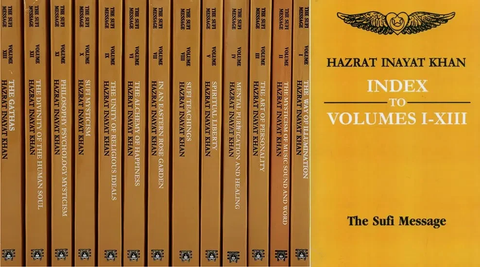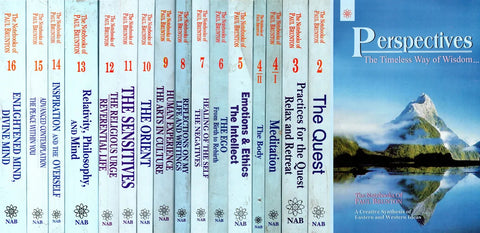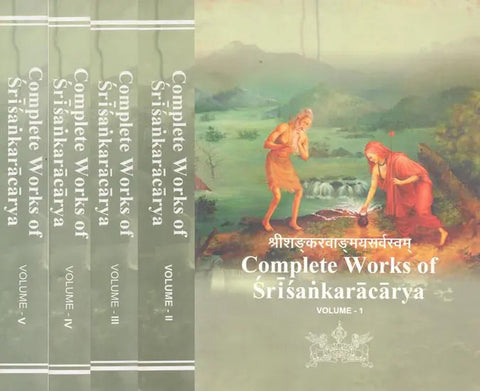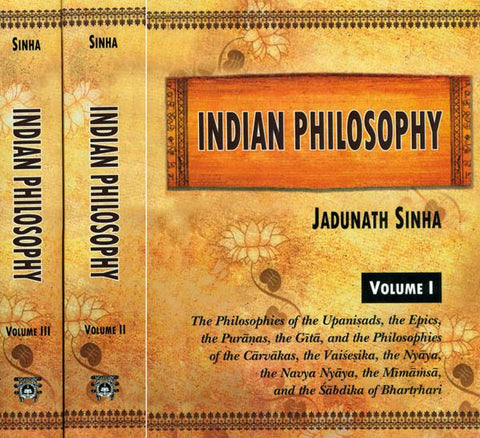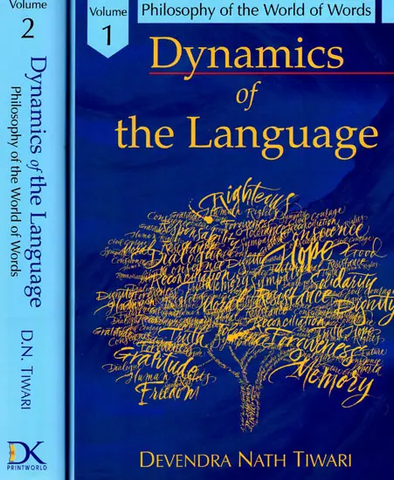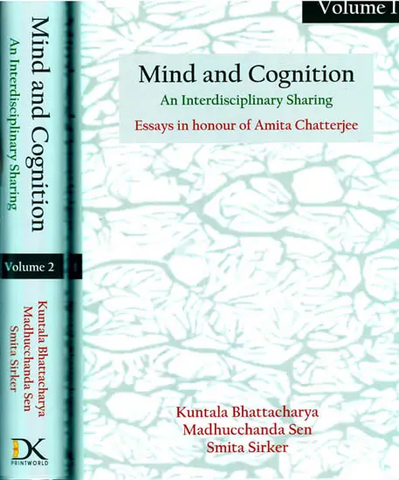Your cart is empty now.
The word 'Philosophy as well as the conjuring expression 'Indian philosophy' has meant different things to different people- endeavours and activities, old and new, grave and frivolous, deifying and banal, esoteric and exoteric. In this book, the author has chosen deliberately a very dominant trend of the classical (Sanskrit) philosophical literature as his subject of study. The ago of the material used here demands both philological scholarship and philosophical amplification. Classical pramanasastras usually deal with the theory of knowledge, the nature of inference and language, and the related questions of ontology and semantics. Several important concepts and theories have been singed out for critical analysis and clarification in modern terms so that the results may be intelligible to modern students of both Sanskrit and philosophy. It is hoped that such attempt will kindle the enthusiasm of young scholars in the field and inspire them to proceed in the comparatively new area of research and explore into further and more interesting possibilities.
About the Author
Bimal Krishna Matilal was Jubilee Scholar in 1954-56, and recipient of Hem Chandra Goswami Prize and Gold Medal in 1956. He was a Harvard-Yenching Fellow in 1962-64. Having obtained his M. A. and Ph. D. from Harvard in 1965, he started teaching at the University of Toronto, Canada. He has been the Spalding Professor of Eastern Religions and Ethics at Oxford University and a Fellows of All Souls College. He was the founder-editor of the Journal of Indian Philosophy.
Among his important works are; The Navya-nyaya Doctrine of Negation; Epistemology, Logic and Grammar in Indian philosophical Analysis; The Central Philosophy of Jainism Nyaya-Vaisesika; Logical and Ethical Issues of Religious Belief etc.
Back of The Book
Excerpts from reviews:
Logic, Language and Reality contains much Sanskritic scholarship that will make it more immediately accessible to the Indologist.
Matilal reconstructs arguments and positions with special reference to modern analytical philosophy .Every chapter is abundant in suggestive remarks about the appositeness of Indian theories of modern problem .indeed, part of the intellectual excitement of reading the book is in many possibilities for future philosophical research that it opens up.
The book is a notable achievement, being a very fine contribution to understanding between different philosophical traditions. There are very few people who are suited as Professor Matilal to the task he takes upon himself, and his efforts will be rewarded if this book is read and discussed by those to whom it is primarily addressed, namely, the Western philosophical community, or peoples who are trained manly in that tradition. And I have no doubt that they too will find it rewarding to spend their time on this work of great scholarship and philosophical sensitivity, marked throughout by a clarity and directness of style
The book is meant for philosophers along with those interested in Sanskrit, Indian Studies and what may be called a global approach to the study of philosophy. I have begun with the logical theories of ancient and medieval India. 'Logic is used in this context to mean the study of inference-patters, rules of debate, point of controversy, sophistical arguments etc. Some may object to our use of the tern 'logic' in this rather board sense. In using this, however, I have been guided by other recognized exports in the field. Thus, I.M. Bochenski has remarked in his History of Formal Logic:
"Formal logic (Nyaya-sastra) developed in Indian, as in Greece, from the methodology of discussion. Such a methodology was already systematically constructed in the second century B.C. The first ideas which can be said to be formal-logical occur indeed as early as the Vaisesika-sutra (first century A.D.), but the history of Indian formal logic properly begins with the Nyaya-sutra (edited in the second century A.D.). This 'logical' sutra (so characterized by its very name) was the foundation of Indian logical thought."(p.417)
Problems of inference lead to the discussion of philosophical logic. Historically, the early Nyaya in Indian was succeeded by what we call Nyaya -nyaya in the 12th -13th century A.D. philosophers of this period were involved in the discussion of such problems as empty terns, reference-failure, double negation, concomitance, definition, classification and essences. All these issues constitute the second chapter here.
Logical theories of the above kind developed in the background of a theory of knowledge. Medieval philosophers of Indian (of such schools as Nyaya, Buddhist, Jaina and Mimamsaka) had made extensive study of the problem of knowledge. I have given only a very brief account of it in the third chapter. As I discuss these issues more extensively in another forthcoming book, perception (Oxford University Press), I have only presented a sketch of Indian theory of knowledge here. Several peculiarities of the Indian notion of knowledge and inference have been noted in this connection.
The problem of knowledge leads to the question of what is known. Chapter Four deals with ontological problems. I have tried to present them in a somewhat new, non-traditional, way. I have tried to bring together the rival traditions: Hinduism, Buddhism and Jainism. F. Kafka once said:
"The scriptures are unalterable and the comments often enough merely express the commentator's bewilderment".
My new attempt may therefore be taken to be expression of my own 'bewilderment. The discussion here inevitably leads to the discussion of such broader question as soteriology, the meaning and goal of Human life and problem of suffering, space, to alayavijnana, soul and karma. I have tried, within a very brief space, to present the provisional answers given to such question by the classical Indian philosophers.
In the first chapter, I deal with the interrelation of grammar and philosophy in India. This is a significant character of classical Indian philosophy. The grammarians used to have considerable influence upon the philosophers. Some grammarians (e., g., Bhartrhari) were well known as philosophers. India was fortunate to have Panini and Paniniyas. I have tried to give some examples to show how the insights of the grammarians were combined with the problems of the philosophy of language In, Indian, philosophy of language formed part of a comprehensive theory of knowledge, i.e., theory of pramanas, for one of the ways of knowing what is the case is to rightly understand what is said by an expert and trust-worthy person (apta). Following this line, the philosophers of knowledge in classical India established a connection between the tradition problems of knowledge and those in philosophy of language. I conclude with a few comments on modality seminally involved in the notion of compatibility (yogyata) and grammaticality of linguistic expression.
In several places, I have repeated one very general theme, of which the different issues discussed in this book provide only different illustrations. The theme is the question of the relevance of Sanskritic study in the context of modern context can hardly be overemphasized, specially when even among the professional philosophers, students and research-worked of India today, study of Indian philosophy, in the way I conceive it hare, has been much neglected and largely forgotten. In support I wish to quote from the written of an erudite Indian pandit who was, in my humble opinion, also a creative philosopher of our country. Pandit Sukhlaji Sanghavi recommended openly "a non-partisan, historical-comparative study" of any Sanskrit philosophical text, and wrote in his preface to Advanced Studies in Indian Logic and Metaphysics (1961):
"I become firmly convinced that the study of any philosophical system inevitably demands pre-requisites and that these prerequisites include a fairly accurate understanding of the historical inter-relationship obtaining between the various philosophical system of India."
Panditji's Preface should be read by all young scholars of our county, specially by those who wish to work on any system of Indian philosophy. I was myself deeply influenced by these comments of Panditji when I started, about twenty years ago, my own research in Indian philosophy. One may add, however, to Panditji comment that a reasonably clear understanding of modern (largely Western) philosophical problems should also be included among the 'prerequisites'.
In written this book, I have incorporated, either partly or wholly, several articles written over the last twenty years and published in various anthologies, festschrifts and commemoration volumes. As they are by and large unavailable and as they fit very well with the main argument of this book, I have included their revised and sometimes re-written versions hare. On the whole, however, this is a new book, which aspires to an be in formative introduction to Indian philosophical problems-problems that were discussed in the classical period.
Some portions of this book bear unmistakably the "vestiges" of my "Indian" English style. I make this remark in awareness of the fact that scholars in India as well as in other non-English speaking countries have used such a style for a pretty long time. In recognitions of this fact, one well-known Dutch scholar, C.A.O. van Nieuwenhuijze (whose own English, by the way was perfect) made an elaborate comment which is worth quoting:
"An additional remark on the linguistic appearance of this book should be made here. Contrary to what at a first glance may seem to be the case, the book is not in English. It has been written in a lingua franca of the Western world of the middle of the twentieth century, which by some is mistakenly called English, particularly as far as its vocabulary and syntax are concerned."(p. xii, preface)
The remark has obviously been made facetiously. I wish to add simply that my hesitance has been overcome only by my awareness of the fact that the category of readers addressed to in this book has largely come to expect a style like this from Indian writers, specially those who deal with Sanskritic material.
In preparing this manuscript I have been considerably helped by my former student, Mr. P. K. Sen of Calcutta University, as well as by wife, Karabi. I wish to thank both of then here.
| Preface to the Second Edition | ix | |
| Introduction | xiii | |
| Chapter One: Logic And Dialectic In Ancient And Medieval India | 1 | |
| 1.1 | Ancient Indian Logic and the Question of Greek Influence | 1 |
| 1.2 | Rules of Dialectic and Debate | 9 |
| 1.3 | Argument and Pseudo-Argument (Nyaya and Nyayabhasa | 23 |
| 1.4 | The Early Nyaya Theory of Inference (Nyayasutra 1.1.5) | 29 |
| 1.5 | Pseudo-Reason (Hetvabhasa) | 42 |
| 1.6 | What Do We Infer? | 58 |
| 1.7 | The 'Triple-Character' of Reason | 68 |
| Chapter Two: Problems Of Philosophical Logic In Navyanyaya | 76 | |
| 2.1 | Empty Terms | 76 |
| 2.2 | Reference and Existence | 85 |
| 2.3 | The Navyanyaya Logic of property Locative | 112 |
| 2.4 | The Problems of 'Universal Properties' (Kevalanvayin) | 128 |
| 2.5 | Inference and Concomitance (vyapti) | 140 |
| 2.6 | Doubles Negative in Navyanyaya | 145 |
| 2.8 | The Difference of Difference | 155 |
| 2.8 | Definition and Classification | 164 |
| 2.9 | Definition, Difference and Essence | 176 |
| 2.9 | Definition, Differentiation and Essence | 176 |
| Chapter Three: Problems Of Knowledge And Perception | 203 | |
| 3.1 | Awareness and knowledge | 203 |
| 3.2 | Perceiving and misperceiving | 215 |
| 3.3 | Knowing the External World | 228 |
| 3.4 | Memory | 262 |
| Chapter Four: Ontological Problems | 268 | |
| 4.1 | Three Rival Ontologies: Nyaya, Buddhism and Jainism | 268 |
| 4.2 | Causality | 284 |
| 4.3 | Substance (Jainism and Vaisesika) | 294 |
| 4.4 | Seven Ways of Non-Absolutism (Saptabhangt) | 301 |
| 4.5 | 'Emptiness' and 'Many-sidedness | 314 |
| 4.6 | Avidya in Buddhism, Yoga and Nyaya | 319 |
| 4.7 | The Enigmas of Buddhism: Alayavijnana, Duhkha and Nirvana | 333 |
| 4.8 | Transmigration and the Moral Enigma of Karma | 351 |
| Chapter Five : Interaction Of Grammar And Philosophy | 372 | |
| 5.1 | The Doctrine of Karana | 372 |
| 5.2 | Substance and Quality in Sanskrit Grammatical Theory | 378 |
| 5.3 | Grammatical Categories: A Navyanyaya Appraisal | 389 |
| 5.4 | The Notion of the Sentence (vakya) | 398 |
| 5.5 | Grammatically and Meaningfulness | 416 |
| Select Bibliography | 431 | |
| Index | 439 |
Delivery and Shipping Policy
- INTERNATIONAL SHIPPING
- Rs.1000-1100/kg
- ESTD. Delivery Time: 2-3 weeks (depending on location)
- Bubble Wrapped with Extra Padding
- NATIONAL SHIPPING
- NCR: Rs. 30/half kg
- Standard: Rs. 80/half kg
- Express shipments also available on Request
- ESTD. Delivery Time: Ranging from 1-4 days up to 7 business days (Depending on your choice of Delivery)
- TRACKING
- All orders; national or international, will be provided with a Tracking ID to check the status of their respective orders
- Depending on the Shipping Service, Tracking ID may be used on their respective tracking portals
Frequently Asked Questions (FAQs)
Domestic Shipping: 3-4 Days (after shipping)
International Shipping: 1-2 weeks (based on your location)
You will receive an email once your order has been shipped or you can email us if you didn't receive tracking details (info@mlbd.co.in)
Every book that we sell is the latest edition except all the rare books
Yes, we do provide free shipping, only on domestic orders (within India) above Rs.1500


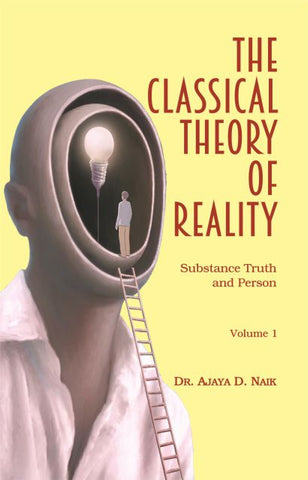
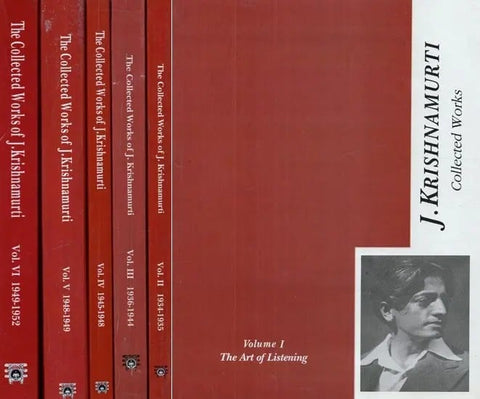

![A HISTORY OF INDIAN PHILOSOPHY [5 VOLUMES] by Surendranath Dasgupta](http://www.motilalbanarsidass.com/cdn/shop/products/HISTORYOFINDIANPHILOSOPHY_large.jpg?v=1675238163)
